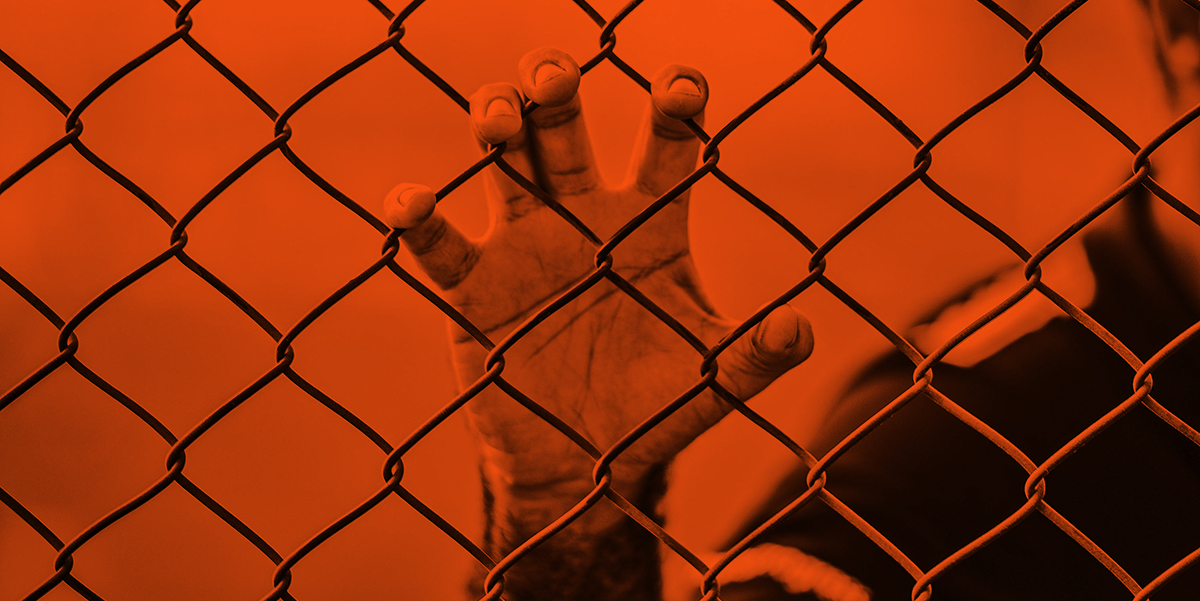Corporate sustainability due diligence: Council and Parliament strike deal to protect environment and human rights.
The Council and the European Parliament today reached a provisional deal on the corporate sustainability due diligence directive (CSDDD), which aims to enhance the protection of the environment and human rights in the EU and globally. The due diligence directive will set obligations for large companies regarding actual and potential adverse impacts on human rights and the environment, with respect to their own operations, those of their subsidiaries, and those carried out by their business partners.
Obligations for companies
The due diligence directive lays down rules on obligations for large companies regarding actual and potential adverse impacts on the environment and human rights for their business chain of activities which covers the upstream business partners of the company and partially the downstream activities, such as distribution or recycling.
The directive also lays down rules on penalties and civil liability for infringing those obligations; it requires companies to adopt a plan ensuring that their business model and strategy are compatible with the Paris agreement on climate change.
Main elements of the agreement
The provisional agreement reached today between the two co-legislators frames the scope of the directive, clarifies the liabilities for non-compliant companies, better defines the different penalties, and completes the list of rights and prohibitions that companies should respect.
Scope of the directive
The agreement fixes the scope of the directive on large companies that have more than 500 employees and a net worldwide turnover of €150 million. For non-EU companies it will apply if they have a €300 million net turnover generated in the EU, three years from the entry into force of the directive. The Commission will have to publish a list of non-EU companies that fall under the scope of the directive.
Financial Sector
According to the deal reached today, the financial sector will be temporarily excluded from the scope of the directive, but there will be a review clause for a possible future inclusion of this sector based on a sufficient impact assessment.
Climate change and civil liability
The compromise struck today strengthens the provisions related to the obligation of means for large companies to adopt and put into effect a transition plan for climate change mitigation. On civil liability, the agreement reinforces the access to justice of persons affected. It establishes a period of five years to bring claims by those concerned by adverse impacts (including trade unions or civil society organisations). It also limits the disclosure of evidence, injunctive measures, and cost of the proceedings for claimants. As a last resort, companies that identify adverse impacts on environment or human rights by some of their business partners will have to end those business relationships when these impacts cannot be prevented or ended.
Penalties
For companies that fail to pay fines imposed on them in the event of violation of the directive, the provisional agreement includes several injunction measures, and takes into consideration the turnover of the company to impose pecuniary penalties (i.e. a minimum maximum of 5% of the company’s net turnover). The deal includes the obligation for companies to carry out meaningful engagement including a dialogue and consultation with affected stakeholders, as one of the measures of the due diligence process.
Public procurement
The deal establishes that compliance with the CSDDD could be qualified as a criterion for the award of public contracts and concessions.
Definitions
The provisional agreement clarifies the obligations for companies described in Annex I, a list of specific rights and prohibitions which constitutes an adverse human rights impact when they are abused or violated. The list makes references to international instruments that have been ratified by all member states and that set sufficiently clear standards that can be observed by companies.
The compromise adds new elements to the obligations and instruments listed in the Annex as regards human rights, particularly for vulnerable groups and core International Labour Organisation (ILO) Conventions, which can be added to the list, by delegated acts, once they have been ratified by all member states.
The provisional agreement also introduces in the annex references to other UN conventions the International covenant on civil and political rights or the International covenant on economic, social and cultural rights, or the Convention on the rights of the child. Likewise, the compromise clarifies the nature of environmental impacts covered by this directive as any measurable environmental degradation, such as harmful soil change, water or air pollution, harmful emissions or excessive water consumption or other impacts on natural resources.
Next steps
The provisional agreement reached with the European Parliament now needs to be endorsed and formally adopted by both institutions.
Background
On 23 February 2022, the Commission submitted to the European Parliament and to the Council a proposal for a directive on corporate sustainability due diligence. The Council adopted its general approach on 1 December 2022.
Corporate sustainability (background information)
Archivio:
 New legal opinion on true and fair shows company directors how to include sustainability in their financial accounts22 February 2024
New legal opinion on true and fair shows company directors how to include sustainability in their financial accounts22 February 2024 Introducing the Impact Taskforce (ITF) State of Play 202312 December 2023
Introducing the Impact Taskforce (ITF) State of Play 202312 December 2023 Coke launches $137.7m sustainability fund15 September 2023
Coke launches $137.7m sustainability fund15 September 2023 Impact Investing UK case study repository15 September 2023
Impact Investing UK case study repository15 September 2023 European Commission adopted a Proposal for non-profit associations13 September 2023
European Commission adopted a Proposal for non-profit associations13 September 2023 Historic moment for the Social and Solidarity Economy: the UN General Assembly adopts a resolution17 June 2023
Historic moment for the Social and Solidarity Economy: the UN General Assembly adopts a resolution17 June 2023 The Commission approves a proposal for Council recommendation for Member States on developing social economy framework conditions17 June 2023
The Commission approves a proposal for Council recommendation for Member States on developing social economy framework conditions17 June 2023 Updates from the ISSB Board for the issuing of global sustainability standards on January 202428 February 2023
Updates from the ISSB Board for the issuing of global sustainability standards on January 202428 February 2023 In 2023, Turin will be the European capital of social and environmental impact finance19 December 2022
In 2023, Turin will be the European capital of social and environmental impact finance19 December 2022 Turn in European social procurement policies16 December 2022
Turn in European social procurement policies16 December 2022 The transition pathway for proximity & social economy15 December 2022
The transition pathway for proximity & social economy15 December 2022 Social Value Matters Europe in October in Turin27 June 2022
Social Value Matters Europe in October in Turin27 June 2022 The Global Citizen Impact Funds02 May 2022
The Global Citizen Impact Funds02 May 2022 Mayors, unions and the International Energy Agency join forces to boost a just energy transition02 May 2022
Mayors, unions and the International Energy Agency join forces to boost a just energy transition02 May 2022 Social impact integrates the new European innovation ecosystems09 February 2022
Social impact integrates the new European innovation ecosystems09 February 2022 EU co-creation of the proximity and social economy ecosystem09 February 2022
EU co-creation of the proximity and social economy ecosystem09 February 2022 The Impact Taskforce: time to deliver07 February 2022
The Impact Taskforce: time to deliver07 February 2022 Italy: ten million for benefit companies10 December 2021
Italy: ten million for benefit companies10 December 2021 Peer2Peer: Amsterdam Impact29 September 2021
Peer2Peer: Amsterdam Impact29 September 2021 EU Social Taxonomy for a sustainable finance27 September 2021
EU Social Taxonomy for a sustainable finance27 September 2021 EVPA position paper on EU Action Plan for the Social Economy20 September 2021
EVPA position paper on EU Action Plan for the Social Economy20 September 2021 Generation Changemaker29 June 2021
Generation Changemaker29 June 2021 Social Stock Exchange, Paris launches an index for the best responsible and sustainable companies22 April 2021
Social Stock Exchange, Paris launches an index for the best responsible and sustainable companies22 April 2021 The Franchising Push for Social Impact31 March 2021
The Franchising Push for Social Impact31 March 2021 Report from the European Commission on Socially responsible public procurement (SRPP) in 27 countries22 March 2021
Report from the European Commission on Socially responsible public procurement (SRPP) in 27 countries22 March 2021 B20 at the start, in the sign of the impact revolution18 February 2021
B20 at the start, in the sign of the impact revolution18 February 2021 Everyone a Changemaker, Ashoka’s mission15 February 2021
Everyone a Changemaker, Ashoka’s mission15 February 2021 The Final Statement of The Economy of Francesco10 December 2020
The Final Statement of The Economy of Francesco10 December 2020 The Gaetano Marzotto Prize looks to social impact with the first edition of the 2030 SI Prize10 December 2020
The Gaetano Marzotto Prize looks to social impact with the first edition of the 2030 SI Prize10 December 2020 B Corp and B Movement Builders11 November 2020
B Corp and B Movement Builders11 November 2020 Road to Mannheim 2021, European Social Economy Summit08 October 2020
Road to Mannheim 2021, European Social Economy Summit08 October 2020 Responsible Banking07 October 2020
Responsible Banking07 October 2020 Cities and Social Impact Bonds05 October 2020
Cities and Social Impact Bonds05 October 2020 GSG leaders call governments for action to put impact at the heart of the Covid-19 economic recovery 30 September 2020
GSG leaders call governments for action to put impact at the heart of the Covid-19 economic recovery 30 September 2020 If not now, then when?22 May 2020
If not now, then when?22 May 2020 Sustainable finance: Commission welcomes deal on an EU-wide classification system for sustainable investments27 February 2020
Sustainable finance: Commission welcomes deal on an EU-wide classification system for sustainable investments27 February 2020 Strong Social Europe for Just Transitions27 February 2020
Strong Social Europe for Just Transitions27 February 2020 The Global Steering Group for Impact Investment18 November 2019
The Global Steering Group for Impact Investment18 November 2019



















